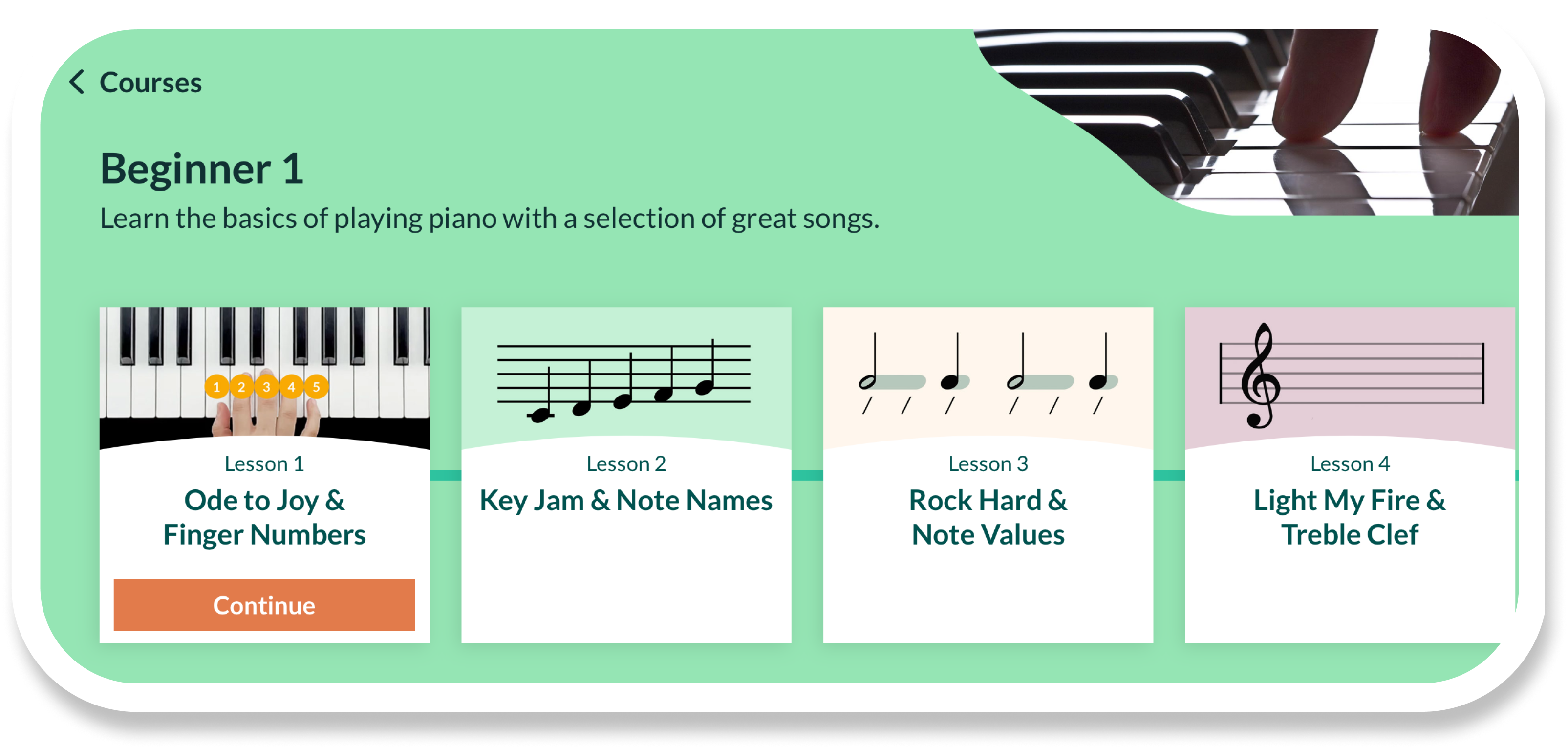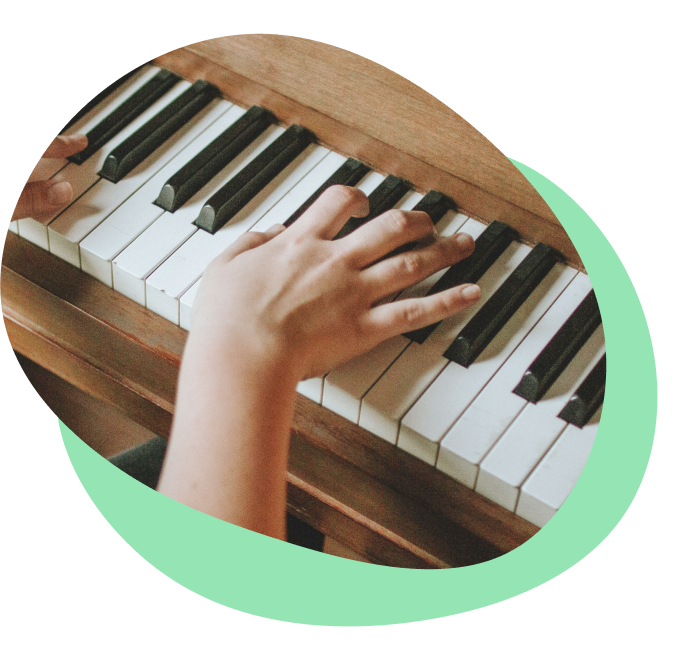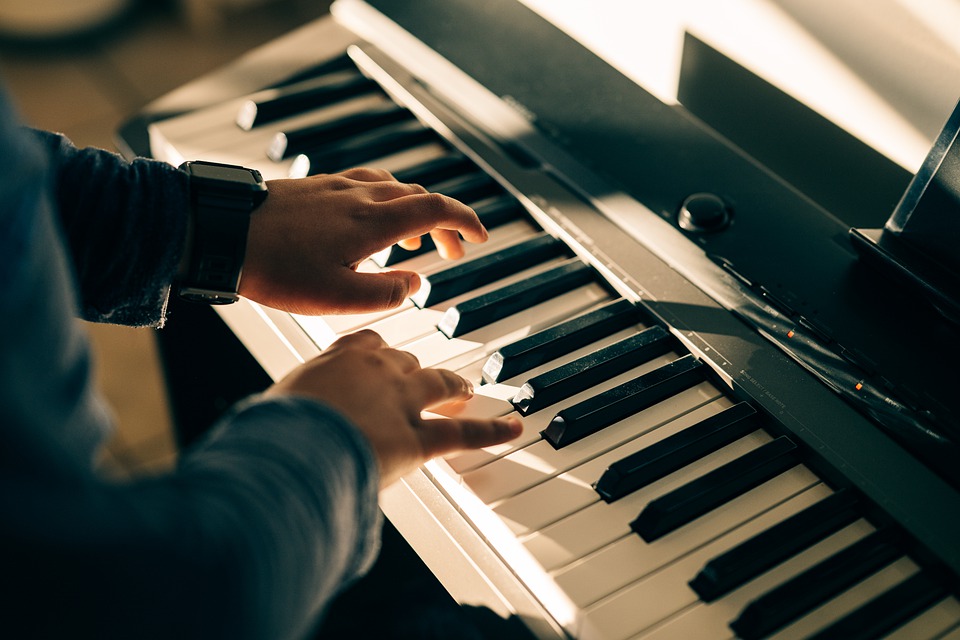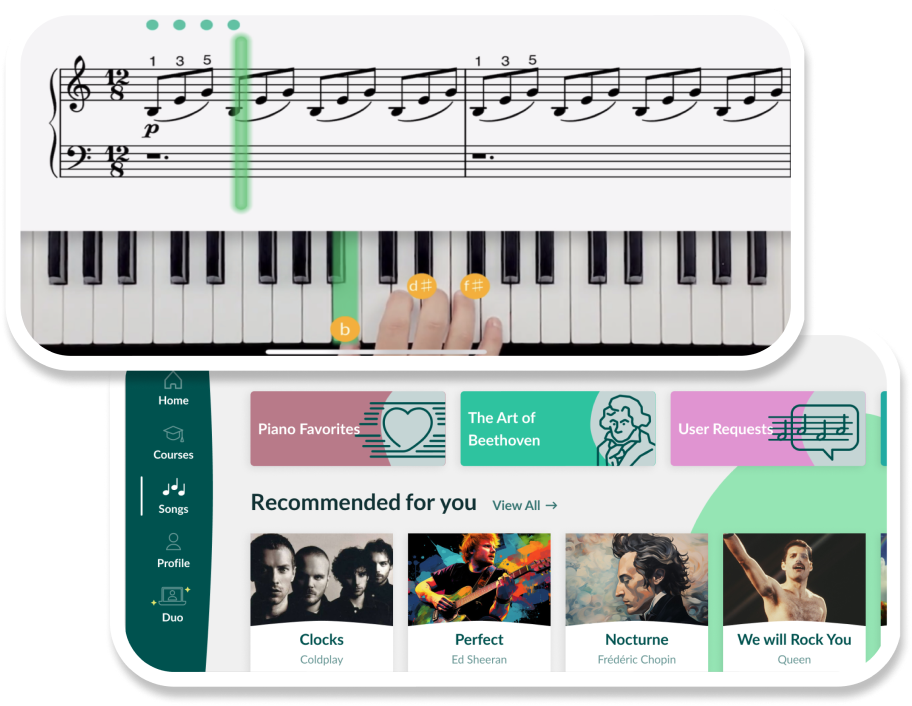For many, the intricate mechanics of a piano are not just the inner workings of a musical instrument, but an investment of time and energy. Understanding the nuances of piano care is important, whether you are a beginner or a well-practiced musician. Proper maintenance and care will preserve your piano, extend its life and ensure musical enjoyment for generations.
Despite the availability of information, many misconceptions are common in regards to piano care. Some believe that pianos don’t need any maintenance, while others believe this to be a complex and unwieldy task. In this article, we will dispel and clarify some of these myths and give some straightforward strategies you can use today to care for your piano.

Piano placement and environment
Choosing the right location
Selecting an ideal location is a critical first step in piano care. Place your piano away from direct sunlight, windows, and air vents to prevent damage from temperature fluctuations and sunlight. A stable, interior wall is often the best choice for positioning your piano.
Consistent temperature and humidity
The nature of pianos makes them highly sensitive to fluctuations in humidity and temperature. Sudden changes can cause the wood to expand and contract, creating tuning problems and potentially damaging your piano.
Try to maintain a consistent environment for your piano, preferably between 68-72 degrees Fahrenheit, with a humidity level around 40-50%. Using a hygrometer to monitor the room’s humidity can be a helpful tool in maintaining the ideal environment for your piano.
Adequate space around the piano
The space around your piano is not just a matter of aesthetics but also affects its sound and maintenance. A clearance of at least a few inches from the wall is recommended to allow for proper sound projection and air circulation. This space also facilitates easier access for cleaning and maintenance. Additionally, ensure that the piano is placed on a level floor to avoid undue stress on its structure. Regularly checking and adjusting the piano’s position can be a key aspect of taking care of a piano.
In the YouTube video “How to Care for Your Piano” by Mr. Piano Tech, four key aspects of piano maintenance are highlighted: ensuring a stable, climate-controlled environment to manage humidity levels; caring for different piano finishes with appropriate cleaning products; conducting regular maintenance including tuning, regulation, and voicing; and the importance of regularly playing the piano to keep it in optimal condition. These steps are essential for preserving the piano’s performance and longevity.
Piano cleaning and preservation
Cleaning piano keys and surfaces
Keeping your piano keys clean is crucial for both hygiene and aesthetics. Using a soft, damp cloth, gently wipe the keys. For white keys, a mild solution of soap and water can be used, while black keys are best cleaned with just water to avoid discoloration. Ensure the cloth is wrung out well to avoid excess moisture.
After cleaning, use a dry cloth to remove any residual dampness. For the piano’s surfaces, use a soft, dry cloth to dust. Avoid using furniture polish or harsh chemicals, as these can damage the finish.
Prevent dust accumulation
Dust can not only affect the look of your piano but also infiltrate into its internal mechanisms, potentially harming its performance. To prevent dust accumulation, regularly dust the piano with a microfiber cloth. Consider using a piano cover when the instrument is not in use. Additionally, maintaining a clean environment in the room where the piano is located can significantly reduce the amount of dust that collects on and around it.
The risks of liquid exposure
Liquids pose a significant threat to pianos. Spills can cause serious damage to the wood, keys, and internal components. To mitigate this risk, it’s advisable to avoid placing drinks or vases on or near the piano. In the event of a spill, immediately wipe the area with a dry, absorbent cloth and consult a professional for advice if the liquid has penetrated the instrument.
The YouTube video titled “Piano Restoration – Full Cleaning and Tuning” by Josiah Jackson, also known as the Piano Doctor, showcases the restoration of an extremely dirty and out-of-tune piano with water damage and non-functional keys. Josiah disassembles the piano, cleans it thoroughly (including removing dust, toys, and pencils stuck inside), and repairs it, focusing on the dampers and tuning. The process involves careful cleaning, using non-alcoholic baby wipes to avoid wood damage, and tuning with specialized tools and an app. The piano’s owners express their gratitude and amazement at the transformation. Josiah also thanks his viewers for their support. The video concludes with a before-and-after comparison of the piano’s condition.
Regular piano care and usage
The benefits of frequent playing
Regularly playing your piano is not just beneficial for your musical progress; it’s also good for the piano. Frequent use helps in maintaining the mechanism’s flexibility. Playing the piano regularly can reveal any issues in early stages, such as sticky keys or unusual sounds, which can then be addressed promptly, ensuring the longevity of the instrument.
Tips to protect the piano during use
While using the piano, it’s important to take care of a few things to avoid unnecessary wear and tear. Always have clean hands to prevent oils and dirt from transferring to the keys and surfaces. Use a proper piano bench at the right height to ensure comfortable and ergonomically correct playing, which also helps in avoiding stress on the piano’s structure. Additionally, using a light touch, especially on the piano pedals, can prevent excessive wear.
Appropriate handling of piano keys and pedals
Treat the keys and piano pedals like the delicate instruments they are. Avoid putting too much force on the keys; gentle and controlled strokes will not only produce a better sound but also preserve the keys’ mechanism. Similarly, the pedals should be used with a light foot, avoiding any aggressive or abrupt movements. This mindful usage is a key aspect of taking care of a piano, ensuring that the delicate internal mechanisms are not damaged over time.
Additional tips for long-term piano care
The piano isn’t a shelf or storage
One common mistake is using the piano as a makeshift shelf for books, vases, or other items. This not only risks damage from scratches or spills but can also affect the piano’s internal mechanics if items are placed on the top, where the soundboard is located. Always keep the piano surface clear to ensure its integrity and sound quality.
Moving and transporting a piano safely
Moving a piano is a delicate task due to its size, weight, and intricate internal components. If relocation is necessary, it’s highly recommended to hire professional piano movers. They have the expertise and equipment to transport pianos safely, minimizing the risk of damage. If you must move the piano yourself, ensure it’s properly secured and protected, and avoid tilting it excessively, which can harm the internal structure.
How to cover and protect your piano
Covering your piano when it is not in use will also help protect your instrument from dust and other environmental factors. Using a breathable, soft cover will help keep the dust off and prevent scratches. Avoid plastic covers as they can trap moisture, potentially damaging the wood. Additionally, if the piano will not be used for a long time, consider getting it professionally serviced before putting it away to ensure it’s in good condition when you return to it.
In the YouTube video “Restoring a Free Piano – Can it be Saved?” by Andy from Cherton Park Pianos, Andy restores a German Klausman piano given to him by a fellow dealer. He inspects the piano, finding its frame, strings, dampers, and hammers in good condition, but discovers mouse droppings and a nest inside. After tuning the significantly out-of-tune piano and dealing with a few sticky keys and snapped strings, he successfully brings it up to concert pitch. Andy concludes that the piano, now suitable for beginners, was restored in about three hours using salvaged parts, demonstrating his passion for reviving old pianos and saving them from disposal.
The mastery of piano care
Taking care of your piano will help preserve the integrity, quality, and functionality of your instrument for generations. Regular attention will enhance your experience with the instrument, and alo help protect the significant investment in an acoustic piano.
Piano care is a continuous process, but it doesn’t not have to be difficult. Follow the basic strategies outlined here and your piano will provide you with creative satisfaction for years to come.
Author of this blog post:
Susana Pérez Posada

With over seven years in piano education and a deep passion for music therapy, Susana brings a unique blend of expertise to Skoove. A graduate in Music Therapy from SRH Hochschule Heidelberg and an experienced classical pianist from Universidad EAFIT, she infuses her teaching with a holistic approach that transcends traditional piano lessons. In her writings for Skoove, Susana combines her rich musical knowledge with engaging storytelling, enriching the learning experience for pianists of all levels. Away from the piano, she loves exploring new places and immersing herself in a good book, believing these diverse experiences enhance her creative teaching style.
Edited and fact-checked by Eddie Bond, multi-instrumentalist performer, composer, and music instructor
Published by Lidya Hovan from the Skoove team














